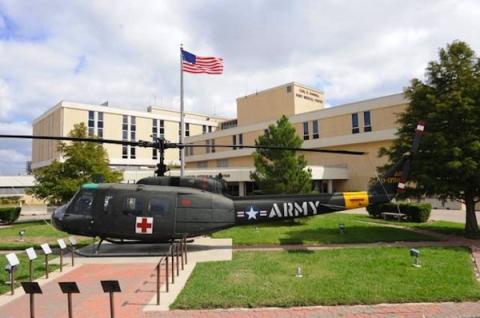It's been nearly four years since a radical Muslim Army psychiatrist walked into a processing center on Ft. Hood, shouted "Allah Akbar," and opened fire. The shooter killed 13 people, including a pregnant woman, and wounded another 32.
In the years that followed, much attention has been paid to the gunman. However, after the initial media storm, little attention has been paid to the victims and their families, and this has caused many of them to file suit with the government, the shooter, and his Muslim leader.
In the aftermath of the shooting, the Army and the Obama administration promised to take care of the families of the fallen and the wounded, but according to the lawsuit filed in U.S. District Court on November 5, 2011, that hasn't happened. The lawsuit claims the government has done everything it can to protect the shooter, Major Nidal Hasan, and their own interests while marginalizing the victims. The suit is seeking $750 million in damages.
One of the biggest bones of contention is the way the incident is classified. Currently, the Department of Defense classifies the incident as "workplace violence," which gives victims a lower priority with regards to care and denies certain monetary compensation that would not be denied if the event was classified as "an act of terror".According to the lawsuit, many of the victims have had to seek medical treatment outside of the military at their own expense and are struggling to coordinate proper care.
A bill introduced by Rep. John Carter (R-Texas), called "The Fort Hood Families Benefits Protection Act," would award victims the Purple Heart or the civilian equivalent from the Department of Defense and provide all the benefits that come with those honors. The purpose of the bill is to "ensure that the victims and victims’ families of the November 5, 2009, attack at Fort Hood, Texas, receive the same treatment and benefits as those Americans who have been killed or wounded in a combat zone overseas and their families."
This is important from a financial standpoint, as those who are killed or wounded as a result of combat are eligible for care and benefits that those who are not killed in combat are not.
The Pentagon has no intention of changing the way this incident is classified which has led some to believe the Pentagon is more concerned about the shooter than his victims.
According to ABC News, a Pentagon position paper issued on March 29 seems to partially confirm this by saying that giving the victims these awards has the potential to "irrevocably alter the fundamental character of this time-honored decoration" and "undermine the prosecution of Major Nidal Hasan by materially and directly compromising Major Hasan's ability to receive a fair trial."
Victims had some hope that the classification of the attack would be changed under the new U.S. Secretary of Defense, but those hopes were dashed as well. Secretary Hagel has said the position of the department remains unchanged.
This is not the first time that an issue such as this one has occurred. In fact, the Pentagon victims of the September 11, 2001 terror attacks were awarded purple hearts -- or the civilian equivalent -- and the incident was quickly classified as a terrorist attack. So what's so different about these two incidents?
Both were carried out by radical Islamic terrorists and records go even further to indicate that both had ties to Al Qaeda. Evidence from the Ft. Hood investigation shows that Hasan had extensive contact with Anwar al-Awlaki, a radical Muslim Imam and known Al Qaeda leader responsible for new recruitment and operational planning. Hasan even attended his mosque in Maryland while stationed at Walter Reed Army Medical Center.
While victims wait for medical and mental health treatments and continue to struggle financially due to the classification, the shooter remains on the Army's payroll, receiving more than $6,000 per month based on his rank.
Jury selection for Hasan's trial is set to begin on May 29.
